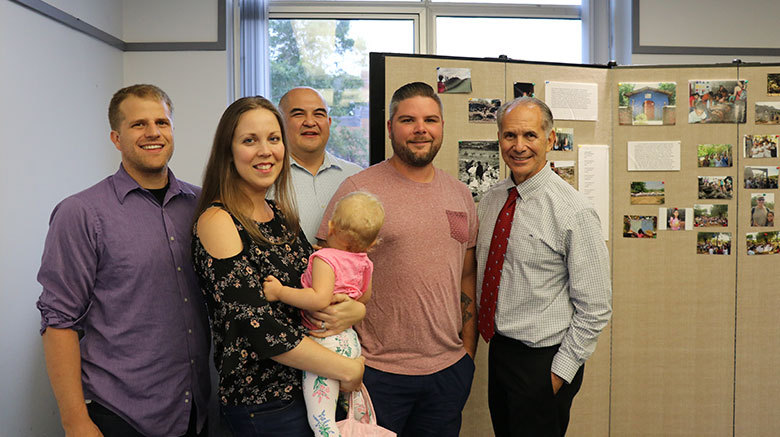Looking for direction in life? Head to Nicaragua.
It certainly seems to work for St. Joseph’s College students. For a decade, participants in the school’s Nicaragua Project have returned home from the trip inspired to take on a new career path, and it’s usually one that involves social justice.
“I feel my best self when I’m down in Nicaragua,” said Nina Franza ’16, who took three Nicaragua Project trips while attending SJC. She was one of 45 alumni and students who attended a 10-year reunion event last month in SJC Long Island’s McGann Conference Center. “On my trips to Nicaragua, the people there gave me 10 times more than I could ever give back.”
A contingent of students, faculty and alumni have taken nearly 20 global service-learning trips to the barrio of Subtiava in the city of León. The program has carried out such projects as creating a community garden adjacent to an elementary school and building and repairing homes, while providing continued support for a preschool and a scholarship program that sends local children to a private grade school in the area.
St. Joseph’s Modern Languages Chair Antoinette Hertel, Ph.D., one of the founders of the program, said the reunion event was an opportunity to see successive generations of students who have travelled to Subtiava gather to reflect on the success of the program and to set goals for the program’s future. She noted how many of the students’ life decisions were affected by their visits to Nicaragua.
“A number of our students start out with a different career in mind, or a different goal in mind,” she said, “and then after they have this experience, they change their direction and become interested in something social-justice oriented.”
Johnny Milano ’11, a freelance photographer who works for The New York Times, Newsday and The Wall Street Journal among other news agencies, found his calling in Subtiava, he said. Before traveling to Nicaragua, the political science major had toyed with the idea of seeking a career in photography.
“Once I went on the trip to Nicaragua, and I started shooting (photographs) — I was working within the community taking pictures and telling stories visually — I came back (home) and everything kind of clicked,” said Milano, who went on to study photography after earning his bachelor’s degree from SJC. “I was already teetering on the edge, but the trip down there made everything go fast forward, full speed.
“I didn’t speak a lick of Spanish when I went down there, but the camera was such a unifying tool between me and the people there. It made me realize that this is what I want to spend the rest of my life doing,” he added.
Thomas Petriano, professor and chair of religious studies and a founder of The Nicaragua Project, said that focusing its efforts on one community in Nicaragua has allowed The Nicaragua Project to make a bigger difference.
“We decided early on that we would travel to this community, rather than travel to different communities or different countries — as a way of trying to make a difference in one specific community,” Dr. Petriano said. “Our work in Subtiava has been very consistent with the mission of the College.”

